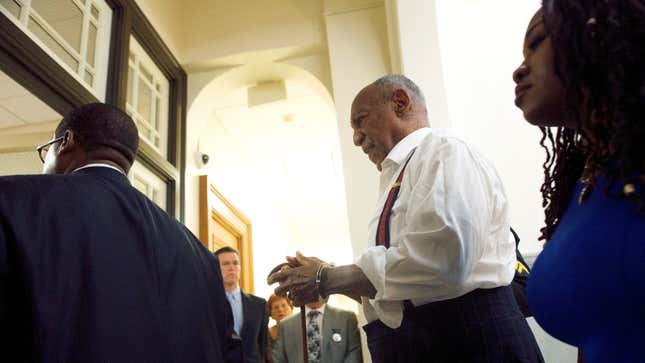What Did All This Attention Get Bill Cosby's Victims?
For Bill Cosby's 60 victims, there have never been any promises
Latest

On Wednesday, a Pennsylvania Supreme Court judge ruled that because of a 2005 handshake agreement with a prosecutor assuring that Bill Cosby would never be charged with drugging and raping Andrea Constand—an assurance that came before 60 women publicly accused Cosby of the same crime—Cosby is free to go home. The case can never be retried.
Unlike the assurances Cosby received, there are no promises for his victims and women like them—not from the police, prosecutors, or the American legal system. In order to have their cases even considered, women like Constand, along with the five other women who were allowed to testify at Cosby’s trial, must “come forward.” That coming forward means repeating the details of the worst moments of one’s life ad nauseam to doubting detectives for the chance to tell it to prosecutors worried only about what a failure to convict will do to data around the department’s wins. If the rapist is notable enough, the victim might once again give intimate details of a painful personal violation to the media so the public can form opinions about the veracity of those details. In very rare cases, a victim gets to tell the story of being forced to have sex against their will to a jury, who will debate that story once again. And after this person who has already survived rape or sexual assault relives the agony of that experience dozens, if not hundreds of times for audiences who typically do not care, do not believe, or some combination of both, in order to earn the right to publicly accuse her assailant of a crime, that assailant will then hire an attorney paid to say out loud what our country’s useless criminal justice system implies: This person is telling this story for attention.
-

-

-

-

-

-

-

-

-

-

-

-

-

-

-

-

-

-

-

-

-

-

-

-

-

-

-

-

-

-

-

-

-

-

-

-

-

-

-

-








































